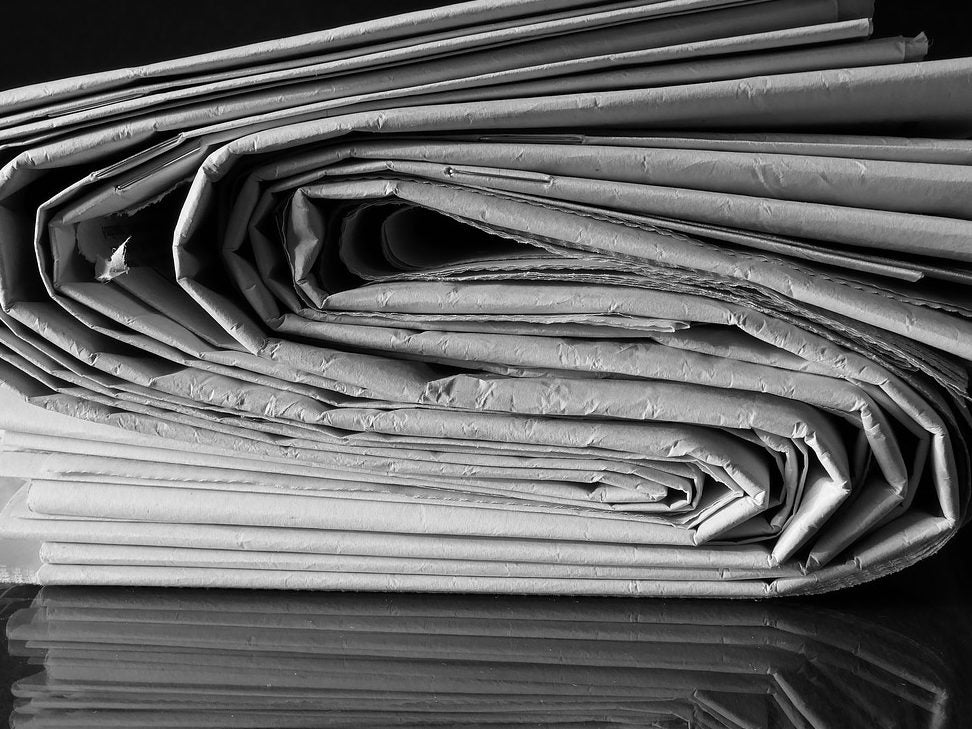
Ireland’s biggest opposition party has proposed €30m state funding and a digital levy to “secure the future” of Irish print journalism.
Fianna Fáil launched its policy proposal this week, saying adequate public resources must be invested to ensure “unbiased, trustworthy fact-based news and current affairs coverage relevant for Irish society” can survive “at the expected standard”.
But its proposal has been criticised by some for excluding high-quality digital journalism and for its potential to block new online-only operations from entering the market.
The party fears the disappearance of professionally produced journalism could impact on democratic debate due to the prevalence of “data driven news feeds governed by algorithms” informing society.
It proposed to expand the Broadcasting Authority of Ireland and establish within it a dedicated print journalism unit to develop new schemes to support the work of journalists creating public service content through grant funding.
The unit’s funding criteria and decisions would be completely independent from government and politicians, the proposal said. The party said a minimum of €30m should be made available for distribution.
It suggested two funding options: a levy of 6 per cent on all digital advertising sales in Ireland to “ensure that the success of online platform does not come at the cost of independent public interest journalism”, and ring-fencing the current Exchequer VAT receipts from newspaper sales (around €27m).
Fianna Fáil communications spokesperson, Timmy Dooley, said: “Quality journalism, the bedrock upon which people are informed in order to make decisions for themselves, is currently jeopardised by a significant downturn in revenues for news publishers in Ireland.
“The figures are stark. National newspaper circulation is down 50 per cent over the past ten years, and down 35 per cent for local newspapers.”
Dooley added: “Our proposals will secure the future of quality print journalism in the country for generations to come.
“Many of our EU colleagues are already investing in print journalism. In France, for example, €262m was made available to newspapers in direct support for distribution, home delivery and modernization and innovation in 2016.
“If we want independent quality journalism, we need to invest. Our citizens deserve open, honest and compelling journalism and Fianna Fáil will protect its future.”
Fianna Fáil also wants to see online platforms pay to use content from newspaper publishers.
Dooley said: “Many print newspapers see their work being shared widely and freely on digital platforms. They receive no payment for this content, and this needs fixing.
“Newspaper journalists research and fact check – this costs money. Those reusing their work must pay for that, otherwise we risk seeing newspapers go bust.”
The proposal would also establish a single ministerial post covering all media, separate to the current Minister for Communications, Climate Action and Environment which covers only broadcasting, and call for progress on reforms to Irish Defamation Law, both issues previously raised by Newsbrands Ireland.
But the proposal to support only print journalism over digital has been slammed as “bizarre” by Fine Gael, currently Ireland’s largest party.
Noel Rock, a Fine Gael politician who represents Dublin North West, said: “These proposals have clearly not been thought out.
“How can you support one platform of a media group and try to differentiate their online business and say it is completely separate so the state will not be supporting the online section?
“Newsrooms are integrated and journalists write for both print and their online titles and indeed, in the 24/7 media environment, it has become the norm for journalists to provide copy to their website title first and print after as the breaking news agenda dictates.
“More and more people are consuming their news online and that is unlikely to change. Quality journalism provided only in an online context would be excluded entirely under these proposals.
“Is that fair use of public funds? What about independent broadcasters and online websites who offer the country and their communities’ good journalism? Why exclude them?
“Indeed, the way this unit is proposed, it will exclude new blood from entering the market – as it is likely that any new and innovative media organisations will be exclusively online focused.
“The motivation behind these proposals may be good but we are left with far more questions than answers. Whatever initiatives are taken in relation to the media need to reflect modern realities and be future-proofed.”
Paddy Logue, digital editor of the Irish Times, also criticised the preference for print over high-quality online news in the proposals, tweeting: “I’m all for proper supports for quality journalism but Timmy Dooley appears here to be equating print with quality and digital with fake news.
“There’s lots of high quality journalism delivered in digital formats that is also worth funding.”
Jane Suiter, director of the Institute for Future Media and Journalism at Dublin City University, said: “The digital advertising levy is very welcome. It should be used to fund public service journalism across all platforms, including digital.”
Email pged@pressgazette.co.uk to point out mistakes, provide story tips or send in a letter for publication on our "Letters Page" blog
